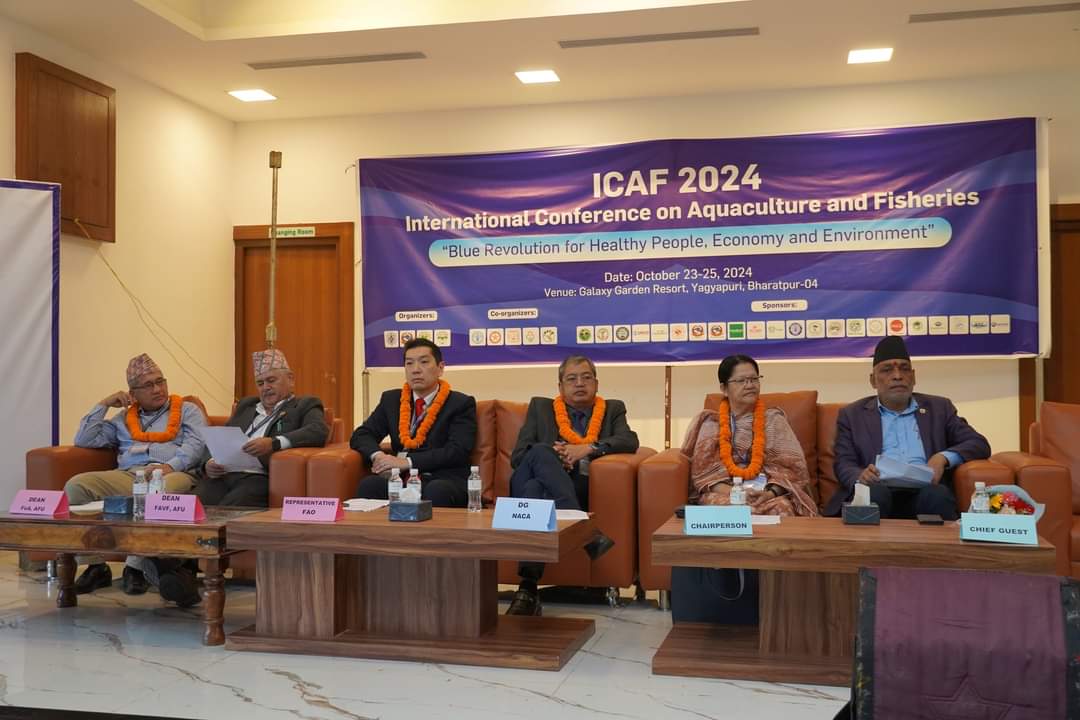Chitwan, October 23, 2024 – The much-anticipated International Conference on Aquaculture and Fisheries (ICAF) began today in Chitwan, bringing together global experts, policymakers, and industry leaders to explore the critical role of aquaculture in sustainable development. The conference, themed “Blue Revolution for Healthy People, Economy, and Environment,” is focused on leveraging the potential of fisheries and aquaculture to drive food security, economic growth, and environmental conservation.

In his keynote address, Ken Shimizu, FAO Representative in Nepal, emphasized the essential contribution of aquaculture in ensuring food security and sustainability. He highlighted that the conference's theme resonates strongly with FAO’s mission to foster resilient food systems. “The Blue Revolution can play a vital role in enhancing food systems for a more secure future,” Shimizu said, underscoring the need for self-sufficiency in the aquaculture sector.
Honorable Ramnath Adhikari, Nepal’s Minister for Agriculture and Livestock Development, spoke about the conference's potential to transform the country’s aquaculture landscape. “This platform will help guide our policies toward building a resilient community. By strengthening fisheries value chains, investing in innovation, and tapping into water resources, we can enhance food security, create economic opportunities, and protect our environment,” the Minister said.
The conference also shed light on FAO's ongoing collaboration with the Government of Nepal under the Technical Cooperation Program (TCP), which focuses on bolstering the Pangasius fish value chain. This initiative aims to improve technical expertise and create favorable conditions for investment in aquaculture, unlocking opportunities for sustainable development in the sector.
FAO congratulated the organizing committee for providing a platform to discuss market dynamics, value chain enhancement, and investment opportunities for Pangasius, a species with significant growth potential in Nepal's aquaculture industry.
The three-day conference is expected to spark meaningful discussions and collaborations that will pave the way for a sustainable "Blue Revolution" in Nepal and beyond.